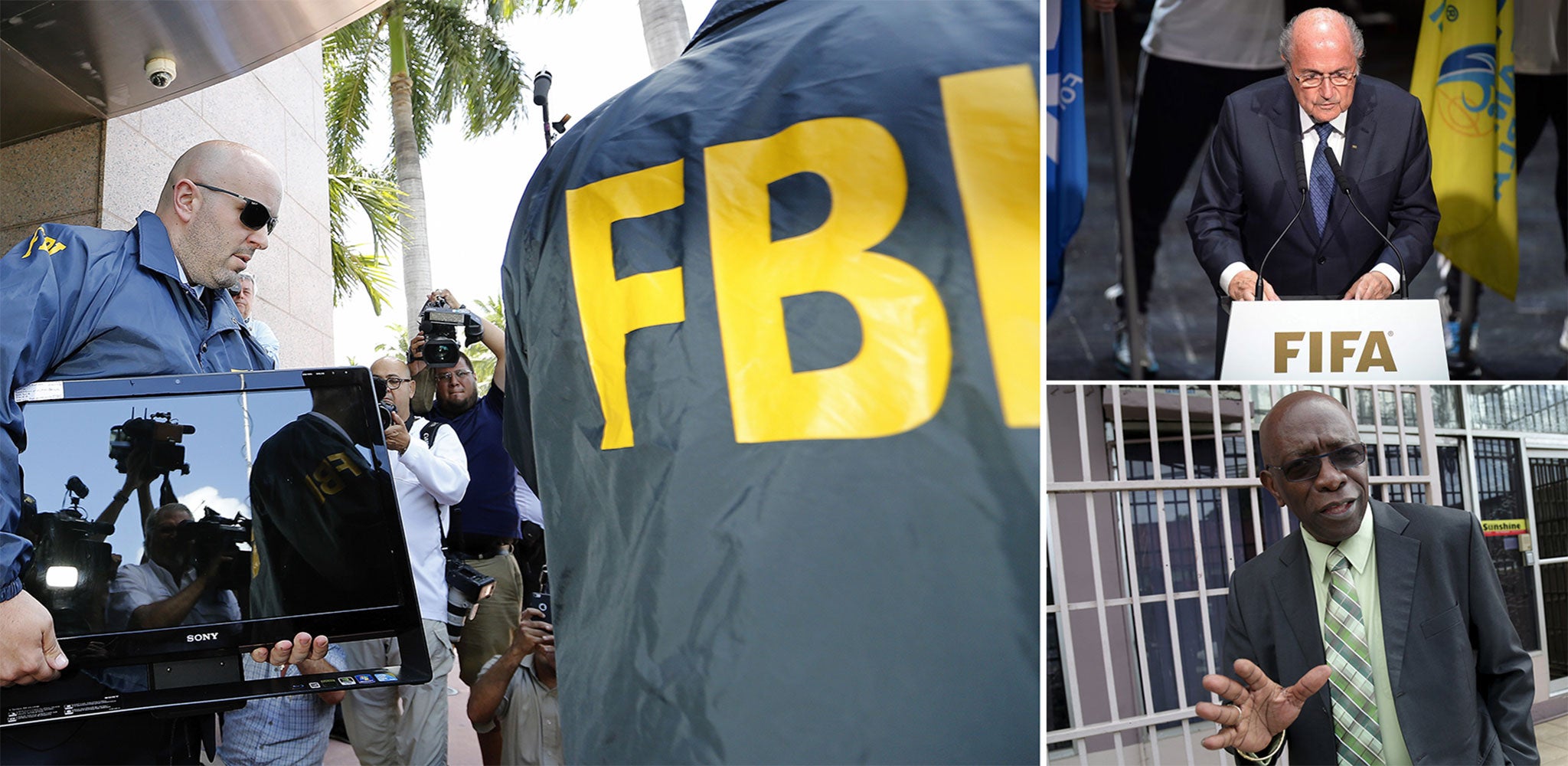Serious Fraud Office looking into allegations after UK banks named in FBI documents
Barclays, HSBC and Standard Chartered Bank are thought to have transferred the money around which the investigated is centred

Your support helps us to tell the story
From reproductive rights to climate change to Big Tech, The Independent is on the ground when the story is developing. Whether it's investigating the financials of Elon Musk's pro-Trump PAC or producing our latest documentary, 'The A Word', which shines a light on the American women fighting for reproductive rights, we know how important it is to parse out the facts from the messaging.
At such a critical moment in US history, we need reporters on the ground. Your donation allows us to keep sending journalists to speak to both sides of the story.
The Independent is trusted by Americans across the entire political spectrum. And unlike many other quality news outlets, we choose not to lock Americans out of our reporting and analysis with paywalls. We believe quality journalism should be available to everyone, paid for by those who can afford it.
Your support makes all the difference.The Serious Fraud Office says it is actively assessing “material in its possession” relating to the Fifa corruption allegations revealed by the FBI this week.
This comes after accounts at the UK-based banks Barclays, HSBC and Standard Chartered were accused by US investigators of moving the cash as part of the conspiracy.
Other nations have also moved to widen the investigation into the corruption scandal which has embroiled world football’s governing body.
A judge in Argentina ordered the arrest of three businessmen accused of using bribery to obtain football media rights, and Brazilian officials moved to open a formal inquiry into the allegations which implicated current and former senior executives from Brazil’s FA.
Fifa president Sepp Blatter’s victory in the body’s leadership election last night also intensified demands for tougher action to be taken.
There has already been close co-operation between SFO and the US Justice Department whose investigation led to the arrest of seven senior Fifa officials in Zurich earlier this week.
US court documents released after the arrests named the three UK-based international banks. According to US Justice Department allegations, accounts at the three banks were used to transfer millions of dollars of alleged bribes paid in return for television rights, sponsorship deals and World Cup votes.
There were also calls for the accounting firm KPMG, which is Fifa’s auditor, to explain its scrutiny role. KPMG declined to comment yesterday.
An SFO spokeswoman said: “We continue actively to assess material in our possession and have made plain we stand ready to assist ongoing international criminal investigations.”
Stressing that the SFO had not launched a formal criminal investigation, the spokeswoman said it could decide to open its own its own inquiry or provide “mutual legal assistance” to both the US and Swiss authorities who are conducting formal investigations.
In November last year the SFO called for anyone with information regarding alleged corruption in the bidding for the 2018 and 2022 World Cups to come forward.
The spokeswoman declined to say whether the material being assessed related to these tournaments.
Earlier, Prime Minister David Cameron, who was visiting Berlin, told Mr Blatter to go, “the sooner the better”.
Speaking at a press conference with German Chancellor Angela Merkel, Mr Cameron said: “In my view, he should go. You can’t have accusations of corruption at this level and on this scale in this organisation and pretend the person currently leading it is the right person to take it forward. That can’t be the case. Frankly what we have seen is the ugly side of the beautiful game.”
He added that the quicker Mr Blatter departed, the faster Fifa could start to “rebuild its credibility, which is going to be so important because so many people around the world want to see this game properly managed, properly looked after, so we can all enjoy the World Cups of the future.”
Mr Blatter’s re-election brought the prospect of World Cup boycott by European nations a step closer.
The FA chairman, Greg Dyke, supported the idea, but said a boycott would need to be widespread. “If Uefa as a group said, ‘Look, unless you get this sorted we are not going to be in the World Cup’ then I think that we would join them,” he told BBC radio.
He said Mr Blatter’s time as president was limited. “I think the events of this week have turned him into a diminished figure and I can’t see him lasting more than a year or two,” he said. “I think it is quite ominous for him when the US Attorney-General says this is only the beginning, not the end.”
Join our commenting forum
Join thought-provoking conversations, follow other Independent readers and see their replies
Comments